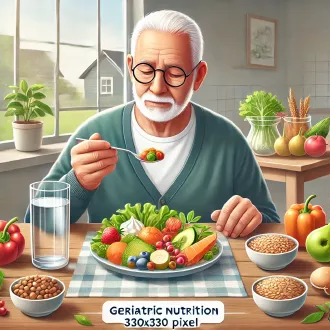Nutrition geriatric nutrition what is symptoms treatment - nutrition geriatrics
Geriatric nutrition is a branch of health care that focuses on the dietary needs of the elderly. As we age, our bodies undergo changes that can affect the way we process food and absorb nutrients. Below, we explore in detail what geriatric nutrition is, the symptoms of malnutrition in the elderly, and the treatments available.
What is Geriatric Nutrition?
Geriatric nutrition focuses on providing a balanced diet that meets the specific nutritional needs of the elderly. This includes a focus on nutrient-rich foods that support bone health, cognitive function, energy and overall well-being. Proper nutrition can prevent many chronic diseases and improve quality of life.
Symptoms of Malnutrition in the Elderly
Malnutrition in older adults can be difficult to detect, but some common symptoms include:
- Unexplained weight loss: Significant weight loss with no apparent cause can be a sign of malnutrition.
- Fatigue and weakness: Constantly feeling tired or weak may indicate insufficient intake of essential nutrients.
- Loss of appetite: Lack of interest in food and a reduced appetite can lead to inadequate caloric and nutrient intake.
- Healing problems: Malnutrition can affect the body's ability to heal and recover from injuries.
- Skin and hair changes: Dry skin, rashes and brittle hair can be signs of nutritional deficiencies.
Treatment of Malnutrition in Older Adults
Treatment of malnutrition in the elderly includes several strategies to ensure that seniors receive adequate nutrition:
- Nutritional assessment: A health care professional can perform a comprehensive assessment to identify nutritional deficiencies and specific needs.
- Balanced meal planning: Creating a meal plan that includes a variety of nutrient-rich foods can help ensure adequate intake.
- Nutritional supplements: In some cases, supplements may be necessary to cover vitamin and mineral deficiencies.
- Dietary adaptations: Modifying the texture and consistency of foods can facilitate intake for people with chewing or swallowing problems.
- Education and support: Providing education about the importance of nutrition and offering ongoing support can motivate older adults to follow a healthy diet.
